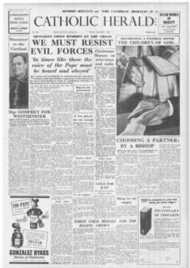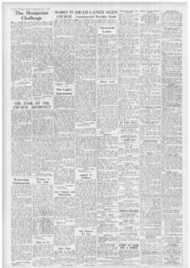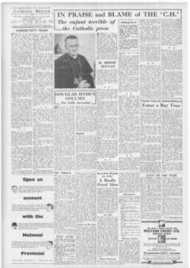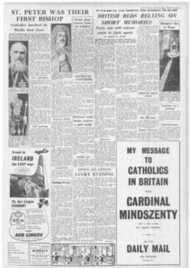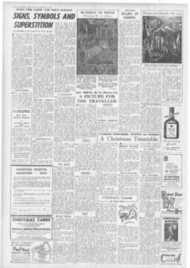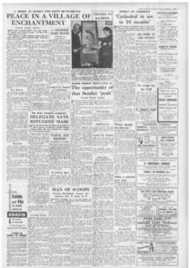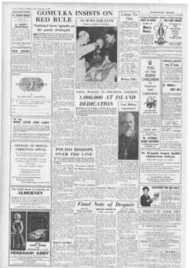Page 7, 7th December 1956
Page 7

Report an error
Noticed an error on this page?If you've noticed an error in this article please click here to report it.
Tags
Share
Related articles
Francis Mccullagh
Communism Is The Great Danger Of Civilisation
" In Franco's Spain "
Gen. O'duffy Accuses Capt. Mccullagh And Efen S Rich Brigade
Open Town Bombing Regular Practice Of Reds
MAN OF SCOOPS Francis • McCullagh, famous war reporter, dies
at home at 82 FRANCIS McCullagh, one of the most famous war correspondents of this century, died at his home in New York State last week, aged 82 As a boy, he left Ireland because he wanted to be a journalist but could not get a job. Not so many years later, Dublin papers, with others all over the world, were writing about him as
the reporter who scooped everyone with news of the Japanese victory over the Russians at Port Arthur.
Work on THE CevLow CATH0L1C MESSENGER started his journalistic career in the Far East, He obtained this job after arriving in olornho with only a sovereign in his pocket and after a brief career with papers in Scotland and the North of England.
He worked for a French paper in Siam and was English editor of the JAPAN TIMES in Tokyo. He resigned when the Russo-Japanese War broke out to become a special correspondent for the NEW YORK HERALD.
He saw the Port Arthur naval battle from the deck of a steamer which had got into the middle of the Russian fleet while trying to make a dash for safety.
He "broke" the story three days ahead of any other correspondent, and he was the only one with an eye-witness account.
This scoop of the century made his name and launched him on one of the most varied and colourful careers in the history of journalism.
He reported the Portuguese revolution of 1910 and the Balkan wars. When the first World War broke out, he joined the Russian Imperial Army and fought with them for three months, Then he returned to Britain to take a commission in the Royal Irish Fusiliers. He served in Gallipoli, Serbia and Macedonia, and finally in Siberia.
After the defeat of Koltchak by the Red Army, he escaped. disguised as a peasant, and was free long enough to interview the man responsible fur the killing of the Tsar and Tsarina. Then he was caught and jailed by the Reds for a year.
His book about thie, "A Prisoner of the Reds," is still considered a valuable study of conditions and interrogation methods in Communist prisons,
Back in Russia two years later, ne reported the trials of Arch. bishop Cieplak and a number of priests, and was expelled because he told the truth.
He reported the Canes persecution of Catholics in Mexico and pioduced a book, "Red Mexico."
During the Spanish civil war, lie was a correspondent with Franco's forces and wrote "In Franco's Spain."
Francis McCullagh was a correspondent of the old school, a man of initiative who, when modern methods of communication and travel were lacking, managed to be first on the spot by intelligent anticipation of events, I-Its physique was slight, but he always wore stout boots-ready to be on the road at any moment.
He was born at Omagh, Co. Tyrone. and was educated there by the Christian Brothers. In his later years in America, he was a regular server at Mass, and in all his writings he was a stalwart defender of the Church.
blog comments powered by Disqus


